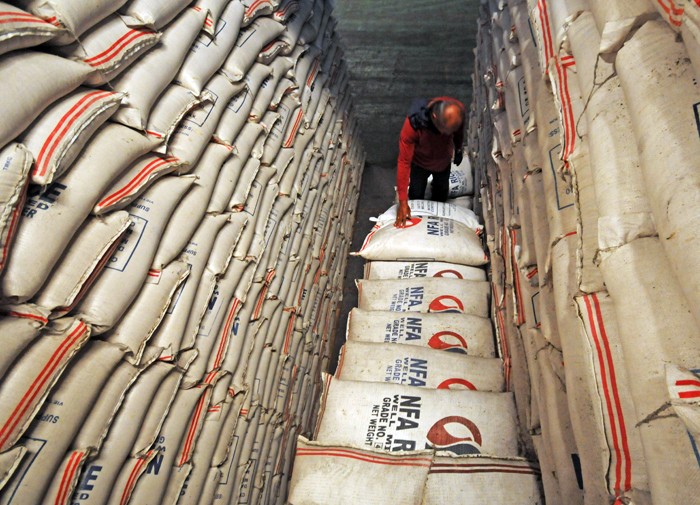- CBN: Local Rice Production Records 70% Increase
The Central Bank of Nigeria (CBN) has stated that the production of rice locally has increased to 70per cent following the introduction of the Anchor Borrowers Programme by the federal government.
Head of Development Finance Department of the Bank, Mr. Chukwudum Nzelu, who disclosed this in Calabar, Cross River State, at the weekend, said before the introduction of the scheme, local rice production stood at 30per cent.
Speaking at a CBN Fair staged to educate the people on financial literacy and the workings of bank, Nzelu said with the increase in rice production locally, Nigeria has saved a lot of foreign exchange.
He noted that if the trend in rice production continues, the country would have succeeded in creating jobs through a new generation of farmers, distributors, transporters, marketers and allied industries associated with rice production.
Nezlu said that the market is inexhaustible because the nation’s population is huge, and there is huge demand for rice in the country.
“So we did an experiment with rice through what we called the anchor borrowers programme, where a rice miller comes as an off taker for small holder farmers who would produce for him and then he takes from them and mills.
“Factories that were operating at 30 per cent now are operating at 70 per cent production capacity after the experiment. With this increase we have created jobs. That is why between 2016 and 2017, we have a lot of local rice in the market. So many local factories that were dormant became active again,” Nezlu said.
Nzelu, who led the Team from the CBN, said they were also intervening in an accelerated agricultural development scheme, aimed at engaging a minimum of 10, 000 youths between the ages of 18 and 35 from the 36 states and Abuja.
“If we are able to take out 10, 000 unemployed people out of the market, you can imagine when you multiply that by 36 states and Abuja,” Nzelu said.
Nzelu said though the core mandate of the CBN requires that they intervene in other sectors to develop the economy, the bank was also saddled with the responsibility of ensuring price and financial system stability.
He said the CBN was concerned that if the country continues importing what can be produced locally, it would deny the people the jobs that would have been created.
In his remarks, the Cross River State Branch Controller of the CBN, Dr. Graham Kalio, urged the participants in the fair to make effective use of the forum because the bank wants the prosperity of everyone Nigerian.
“Put whatever you learn into practice. We want to make sure your money is safe and you have a way of making that money, so you can live well. We want to enjoy everyone enjoys the riches of Nigeria,” Kalio said.


 Forex2 weeks ago
Forex2 weeks ago


 Naira2 weeks ago
Naira2 weeks ago
 Naira4 weeks ago
Naira4 weeks ago
 Company News4 weeks ago
Company News4 weeks ago
 Billionaire Watch1 week ago
Billionaire Watch1 week ago




 Naira2 weeks ago
Naira2 weeks ago




 Naira4 weeks ago
Naira4 weeks ago




 Naira1 week ago
Naira1 week ago





















